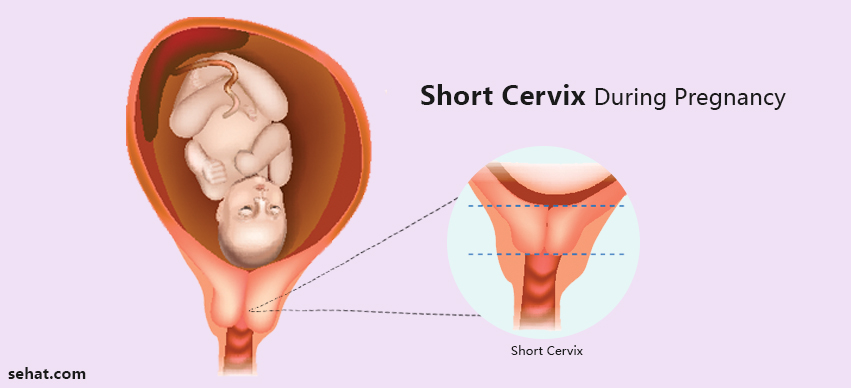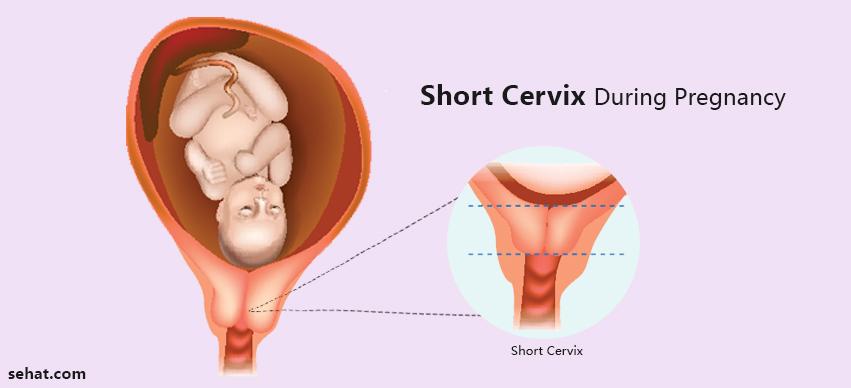How Communities Are Changing the Way We Think About Aging in..
8 Min Read


Pregnancy is a new chapter in a woman's life. Pregnancy means a long journey of blessed 40 weeks. Your bundle of joy gradually growing inside you gives you unparalleled excitement and happiness. However, there are reasons when pregnancy can go wrong. Having a short cervix during pregnancy can be a piece of bad news for an expecting mom. If you are unaware of what a short cervix is and how it can affect your pregnancy, read on.
The cervix is a firm, cylindrical structure that connects the uterus and vagina. It can be found in the lowermost part of the uterus. It functions as a gate during pregnancy.
Before pregnancy, the cervix is firm and usually stays closed. During pregnancy, it plays an essential biomechanical role. The cervix keeps the fetus inside the uterus. By creating a jelly-like thick mucus plug in the cervical canal, the cervix safeguards the embryo from harmful bacteria and other infections. As the pregnancy progresses towards labor, the cervix starts effacement by softening. When your doctor announces you are 80% effaced, that means the cervix has dilated, and the exit route is ready for the baby.
A short cervix is a condition many women undergo during pregnancy. Generally, a cervix is about 25 mm long, but it gets longer during the initial stage of pregnancy. It acts as a wall and protects the embryo within the womb. However, as pregnancy progresses towards the end of the third Trimester, it gets shorter and prepares the birth passage. In some women, the cervix does not stay closed when it should. As the developing embryo's weight creates pressure on the cervix, it gives in to the pressure and starts effacing. The premature shortening of the cervix is called cervical insufficiency or short cervix. Having a cervical insufficiency in the early stages of pregnancy can result in preterm labor or miscarriage.
Unfortunately, medical science cannot pinpoint the reasons for a short cervix length. The causes of the incompetent cervix could be one of the following;
Cervical insufficiency does not come with conclusive symptoms. However, consider consulting your gynecologist if you have any of the following symptoms during the second Trimester;
If you have a record of premature deliveries in the Second Trimester of the symptoms mentioned earlier, your doctor may suggest ultrasound monitoring.
Transvaginal ultrasound: An incompetent cervix can't be diagnosed with manual tests. Your physician may ask for a more reliable transvaginal ultrasound to determine the length of the cervix. This examination is safe and painless and is done through the vagina by using a narrow transducer.
For enjoying a full-term, healthy pregnancy, you may consider taking the following steps;
To ensure a healthy pregnancy, it is a good idea to schedule a pre-pregnancy check-up. A preconception appointment with your doctor will help you address any potential risks or medical issues you might have. The doctor will discuss your medical, surgical, and reproductive histories, along with healthy habits you need to follow during pregnancy. You will also get a guideline regarding diet, prenatal vitamins you should take, and what to avoid during pregnancy.
[Also Read: Drinks to avoid during pregnancy]
Whether you are a first-time momma or have a history of risky pregnancies, routine prenatal care may ensure you have a risk-free, stress-free full-time pregnancy. Your doctor keeps monitoring your health and your baby's health during the trimesters and can identify any risks that may arise during pregnancy.
You may consider scheduling your prenatal visits the following ways;
The first prenatal appointment may be scheduled between the 6th and 8th week of pregnancy. The first prenatal appointment will make a record of all the major health issues. This Trimester requires one monthly prenatal check-up.
You need to visit once every four weeks.
Start this Trimester with twice-a-month visits, and during the final lap of pregnancy, during weeks 36 to 41, you should schedule once a week check-up.
Eat Healthily
A healthy diet with lots of fruits, vegetables, healthy fat, and whole grains will nourish you and the baby.
Avoid Junk Food and Risky Substances
Stay away from alcohol and drugs, unhealthy foods, and OTC medicines.
Don't be stressed if you are diagnosed with cervical insufficiency.
Your obstetrician will recommend ways to prolong your pregnancy and minimize the risk of having a short cervix. Often, obstetricians recommend the following treatments;
Using this surgical method, the cervix is stitched with strong sutures, and the sutures are removed at the time of labor or during the final stage of pregnancy. Cervical cerclage is done during different stages of pregnancy depending on the patient's medical records. However, women pregnant with twins are not suitable for this type of surgical procedure.
If you have a record of premature birth, your physician might administer weekly Makena shots during the second and third trimesters to reduce the risk of early delivery or miscarriage.
Your doctor may suggest pelvic rest or bed rest. However, this may not help alleviate premature delivery or loss of pregnancy in the short cervix condition.
If you have a short cervix during pregnancy, don't fret. Trust your doctor to guide you through the complication with modern medical care and seek emotional support from your family, relatives, and friends.